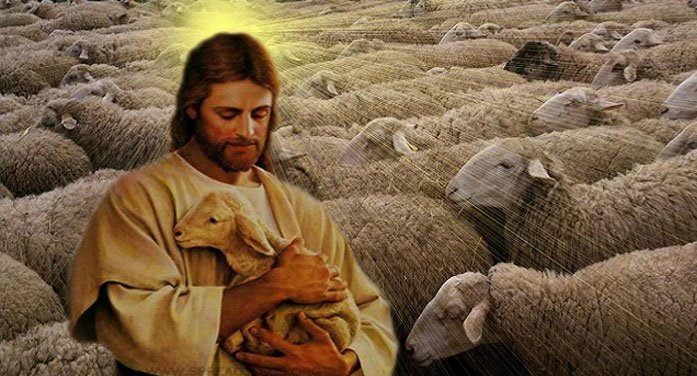To everyone his child is the genius par excellence. Scientists, philosophers and even sages claiming superiority over their systems. Hence, it is not at all surprising that there arise disputes between Our Lord and the Pharisees concerning their doctrines, as both of them were teachers. The Pharisees were quite ignorant of the Divinity of Our Lord. Nevertheless, He could not but affirm His uniqueness. He has come to sacrifice Himself for His sheep, not to be a Master over pupils. He calls Himself the Door affording admission to the Father (Jn. 10:7). He calls Himself the Shepherd to the flock. Finally, He proves Himself the Sheep who would be an expiating victim. But the Pharisees were mere mercenaries sought to prey on the lock.
The dispute was mooted after Our Lord had restored sight to a man blind from birth. The Pharisees begin an investigation on the miracle. There was no denying the fact that the blind man could see now. The Pharisees begin an investigation on the miracle. There was no denying the fact that the blind man could see now. The Pharisees would not approve of it as a miracle. They go to his parents. The parents avow that He was born blind. For fear of the Pharisees, they would not say anything more. But the beneficiary boldly states. “If that man had not come from God. He would not have done anything” (Jn. 9:33). Becoming impatient with the torturing questions of the ill-intentioned Pharisees. He is far wiser than his interrogators. He prostrates himself before the Lord in adoration. His argument is so simple and yet so sublime. He who can perform such a miracle must be of God. If He be of God, His testimony must be true.
In spite of the negative stand of the Pharisees, the other witnesses were quite convinced of the veracity of the miracle. It is a miracle of the eyes restoring the beneficiary’s sight. It is definitely the miracle of the soul, giving faith in Christ. The Pharisees blatantly reject the evidence. Hence Our Lord calls them blind leaders. Since they have rejected Him, judgement will befall them. Still they have a chance to be illuminated (by Himself). For, He is the light of the world. Without this illumination, they will ever remain in their blindness. Next Our Lord proceeds to demonstrate that He gives life to the faithful by His death. Though the Teacher par excellence, He is first and foremost the Savior of the world.
The most prominent figure (of speech) the Exodus applies to God the Savior is that of the good Shepherd. The prophets too often speak of the good shepherds who preserved their flock in luxuriant pastures as against many false ones. Isiah depicts God as carrying His sheep in His arms. Ezekiel delineates Him as Shepherd searching for His lost sheep. Zecharias’ is the saddest of all pictures. He prophesies that the Messiah-Shepherd would be struck, and the sheep shattered. The best known is the presentation in the celebrated psalm 23. The psalmist pictures the Lord leading His sheep to ever green pastures.
He reveals the great cost at which the green pastures are purchased. As the good shepherd, He would lay down His life for His sheep. Once again Jesus’ cross appears under the symbol of the Shepherd. He is the Shepherd-Saviour
“I am the good shepherd. The good shepherd sacrifices his life for the sheep. The Father loves me because I sacrifice my life so I my take it back again. No one can take my life from me. I sacrifice it voluntarily. For I have the authority to lay it down when I want to and also to take it up again. For this is what my Father has commanded”(Jn.10:11, 17, 18). “For I have come down from heaven to do the will of God who sent me, not to do my own will”(Jn. 6:38). “When we were utterly helpless, Christ came just at the right time and died for us sinners. Now, most people would not be willing to die for an upright person, though someone might perhaps be willing to die for a person who is especially good. But God showed His great love for us by sending Christ to die for us while we were still sinners”(Rom. 5:6-8).



